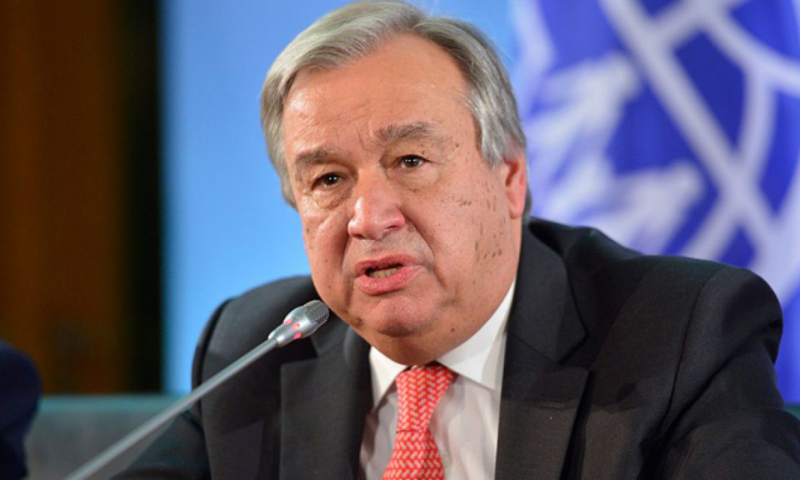UNITED NATIONS: UN Secretary-General Antonio Guterres has renewed appeal for all parties involved to stop the “dangerous cycle of retaliation” in the Middle East following reports of Israeli strikes inside Iran near a nuclear power station.
In a statement released by his Office, Guterres condemned any acts of retaliation and urged the international community to collaborate in preventing further developments that could lead to devastating consequences for the entire region and beyond. “The Secretary-General condemns any act of retaliation and appeals to the international community to work together to prevent any further development that could lead to devastating consequences for the entire region and beyond,” he said.
The UN’s atomic energy agency chief, Rafael Grossi, echoed Guterres’s concerns, urging extreme restraint from all sides after more than six and a half months of Israeli bombardment in Gaza, which have heightened fears of a wider regional conflict.
Responding to unconfirmed media reports of possible drone strikes targeting Iran’s Isfahan province, Grossi emphasized that there was no damage to Iran’s nuclear sites. He reiterated the IAEA’s call for extreme restraint, emphasizing that nuclear facilities should never be targeted in military conflicts.
In Geneva, the UN human rights office (OHCHR) also called on all parties to de-escalate the situation rapidly. OHCHR spokesperson Jeremy Laurence urged third states, particularly those with influence, to take action to prevent further deterioration in the already precarious situation.
Meanwhile, in Gaza, aid teams provided insights into the challenges faced by Palestinian civilians, especially pregnant women and breastfeeding mothers, due to the wanton destruction of vital medical equipment and widespread dehydration, malnutrition, and fear among Palestinians.
Dominic Allen, Representative for the UN sexual and reproductive health agency (UNFPA) for Palestine, described the devastating impact of Israeli attacks on healthcare facilities, including purposeful destruction of medical equipment in maternity wards.
Allen’s mission, conducted in partnership with WHO, OCHA, and UNRWA, aimed to assess the impact of Israeli bombardment on hospitals in Gaza. The assessment revealed overwhelming trauma patients in hospitals like Al Aqsa Hospital in central Gaza and Emirati Hospital in the south, where normal-sized babies are no longer seen. It was clear that the last remaining hospitals in the enclave – including its second largest, Nasser Hospital – are “clinging to life themselves whilst they are a lifeline for the pregnant women of Gaza”, Allen said via video link from Jerusalem.
Expressing palpable fear among Gazans, especially those sheltering in Rafah, Allen emphasized the urgent need for humanitarian assistance and the establishment of safe havens for the more than 1.2 million people affected by the conflict.





















